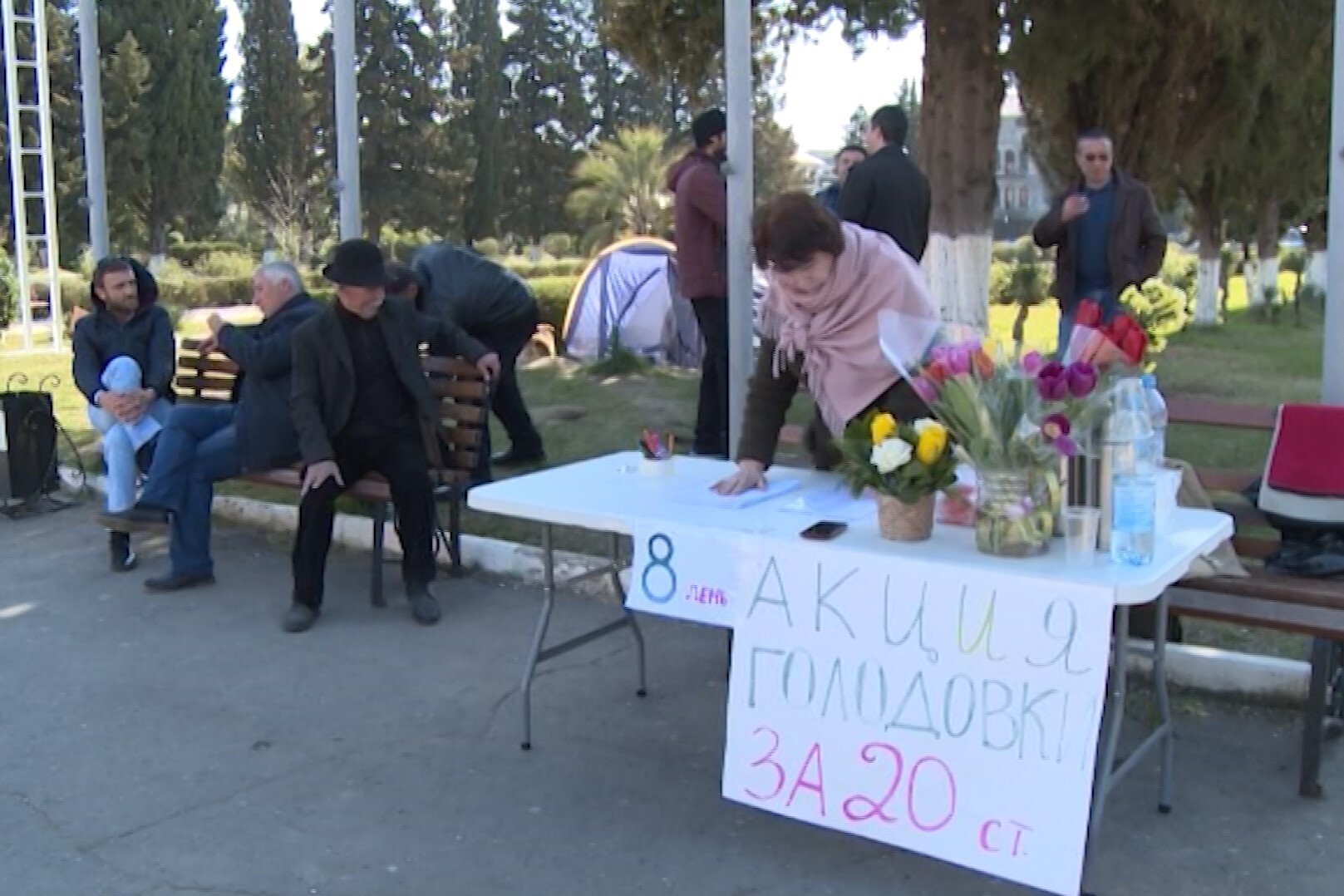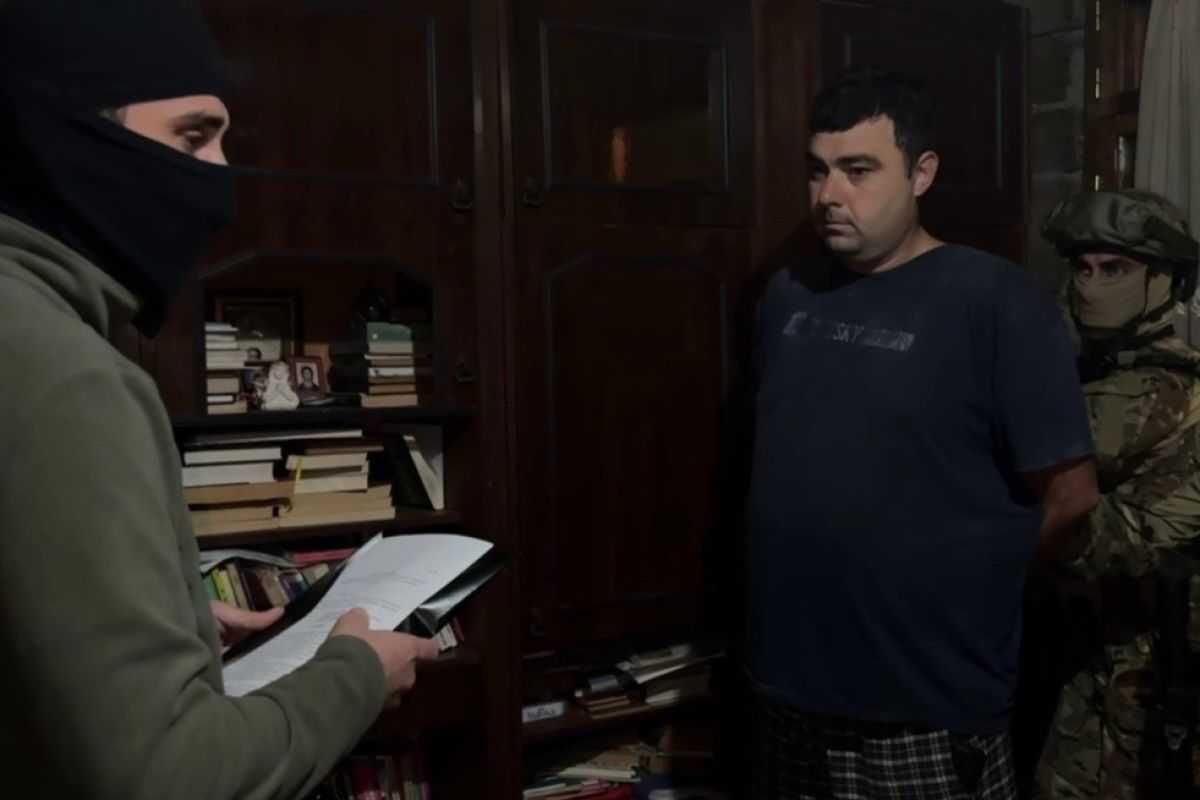
Despite a year having passed since Abkhazia’s parliament adopted a law on the declaration of income and property by government officials, it has yet to be enforced. As a result, activists are now accusing MPs of deliberately dragging out the bill’s implementation to shield themselves from its effects.
On 31 March, MPs in the Abkhazian parliament voted to adopt new amendments to the law governing financial disclosure by government officials. It was only the latest modification of a year old anti-corruption law that, due to parliamentary amendment limbo, for now only exists only on paper.
The amendments passed their first reading on 31 March, if they pass the mandatory second and third readings, the law will come into force on 1 May 2021 — that is, of course, if no new amendments are proposed.
These same amendments had been submitted for a first-reading vote in parliament on 12 March, but were not adopted because they fell short by a single vote.
Endless amendments
‘Instead of finding a way to activate the law, they are adopting amendments that do not make sense’, Astamur Kakaliya, an activist who has been seeking the adoption of the law since 2012, told OC Media.
‘They change around which family members must also fill out a declaration, they exclude minors, then they include them. All this instead of working on the substance of the bill.’

The amendments adopted on 31 March widen the scope of who falls into the category of ‘family member’ of the declarant. Now they include a spouse, children both below and above the age of majority, parents, and siblings who are financially dependent on the declarant.
Earlier, disagreements on the amendments arose as members of parliament could not agree on who exactly should publicly report their income, expenses, and property.
Activists are seeking publicly available income declarations not only from MPs but also from unelected government officials. According to Kakaliya, these declarations should be published on the website of the tax inspection agency.
‘Every resident of Abkhazia should know what an MP, minister, and other decision-making officials own’, he said.
‘Why should only public officials fill out the declaration? If that’s how it’s going to go then everyone should disclose their income’, MP Natalie Smir protested at a parliamentary session on 12 March. According to her, she voted for the amendments only so she was not counted among the ‘bribe-takers’ — the MP claims that the law is incomplete and cannot be adopted in this form.
She was not the only MP to criticise the bill.
MP Batal Tapagua said in parliament that it may be unsafe to publish this kind of information, because such ‘data’ can ‘be used by those with ill-intent’.
To Astamur Kakaliya, such criticism is a gross mischaracterisation of the issue.
‘Flaunting their income and competing in luxury is considered the norm among our people’, he said. ‘No one is hiding this “data” anyways, they feel they have impunity and stick [decorative] lion heads on their fences.’
‘As soon as our anti-corruption law comes into force’, he concluded, ‘all this will become evidence of the plunder of the Motherland.’
Article 16
The adoption of the income declaration bill only came about after the concerted efforts of anti-corruption activists who staged repeated protests, including a hunger strike until it was successfully voted on by parliament.

The bill technically came into force on 20 March 2020, but under a different name than initially proposed. Instead of ‘officials’ in the wording of its title ( ‘On the declaration of income, assets and property relations of public officials and deputies’) the phrase ‘civil servants’ was used — despite such a legal category not existing in Abkhazia.
The bill, now article 16 of the law, is also limited by the proviso that it would be legally effective only after a new law on civil service is adopted.
Some legal experts have said that they believe this will allow the law to effectively remain inert, despite being formally approved by parliament and signed by the president.
‘Either it is necessary to amend Article 16, or to adopt a law on civil service, otherwise the law on declaration will not work’, Dana Kujba, a lawyer, told OC Media. ‘[Until that happens] any official will be able to challenge the need to fill out the declaration, on the grounds that it is a contradiction in the law’.
According to MP Givi Kvarchia, the adoption of the bill on civil service — which has already been written — would be a reliable way out of the situation. But the bill, he argued, would create an undue burden on the state budget, since the classification and ranking of government positions which are part of the bill will lead to an increase in government salaries.
‘Our budget does not allow for this. It is for this reason that the law on civil service did not pass in the last sitting of parliament’, he explained.
One law, two parliaments
The income disclosure bill was born in 2012, when, as part of their election campaign, three independent candidates, Astamur Kakaliya, Nadir Bitiyev and Tengiz Malandzia, promised to promote the initiative to adopt a law providing for the competitive selection of personnel for the state service and accountability for illicit enrichment.
This bill was written to be in line with Article 20 of the United Nations Convention on Illicit Enrichment.
None of the three candidates made it into parliament, but they began to cooperate with the elected MPs and lobbied vigorously for the adoption of the law.
Kakaliya told OC Media that most of Abkhazia’s 35 MPs at the time approved the initiative.
But despite finding support both in parliament and in society, the bill encountered numerous obstacles, Kakaliya said. ‘Batal Tabagua objected. He referred to the absence of a law on civil service, without which, supposedly, our law would not work.’
After the next parliamentary elections in 2017, activists for Article 20 of the UN Convention began to work with MPs of the new parliament. ‘We no longer had any hope in coming to power, so we tried to interest opposition MPs Raul Lolua, Batal Tabagua, Sergei Shamba, and Aslan Bzhania’, Kakaliya recalled.
That same year, parliament organised a working commission on income declaration issues. Meanwhile the activists found an ally in MP Astamur Logua and secured the services of three lawyers who would help write the law on declaration income.
‘As a basis, we took a similar law from Kyrgyzstan and made some minor changes, adapting for our situation’.
This version, however, was never adopted.
In 2019, parliament adopted a draft law presented by then-MP, now President, Aslan Bzhania. Kakaliya and other activists decided to support the bill, despite reservations.
‘In his project, there was no tangible mechanism of accountability for those who wrote false data in their [income and property] declaration’, Kakaliya said. As one such mechanism, the activists proposed dismissal without the right to reinstatement, but the proposal was not included in the final text.
When asked why the activists decided to support Bzhania’s project in light of its shortcomings, Kakaliya said that their task was ‘not to compete with, but to promote the adoption of the law, whoever was its author or initiator.’
The primary geographic terms used in this article are those of the author’s. For ease of reading, we choose not to use qualifiers such as ‘de facto’, ‘unrecognised’, or ‘partially recognised’ when discussing institutions or political positions within Abkhazia, Nagorno-Karabakh, and South Ossetia. This does not imply a position on their status.






